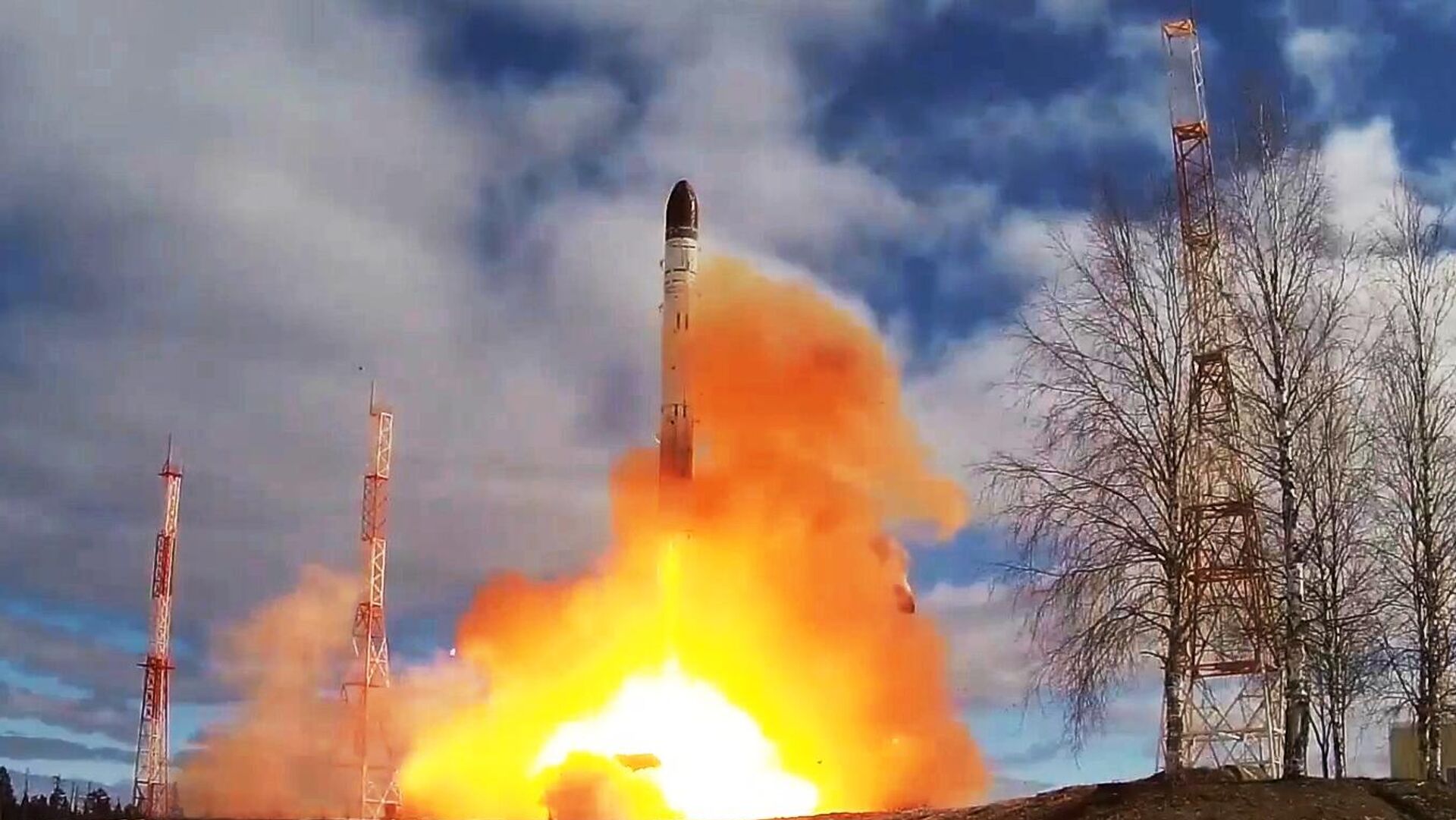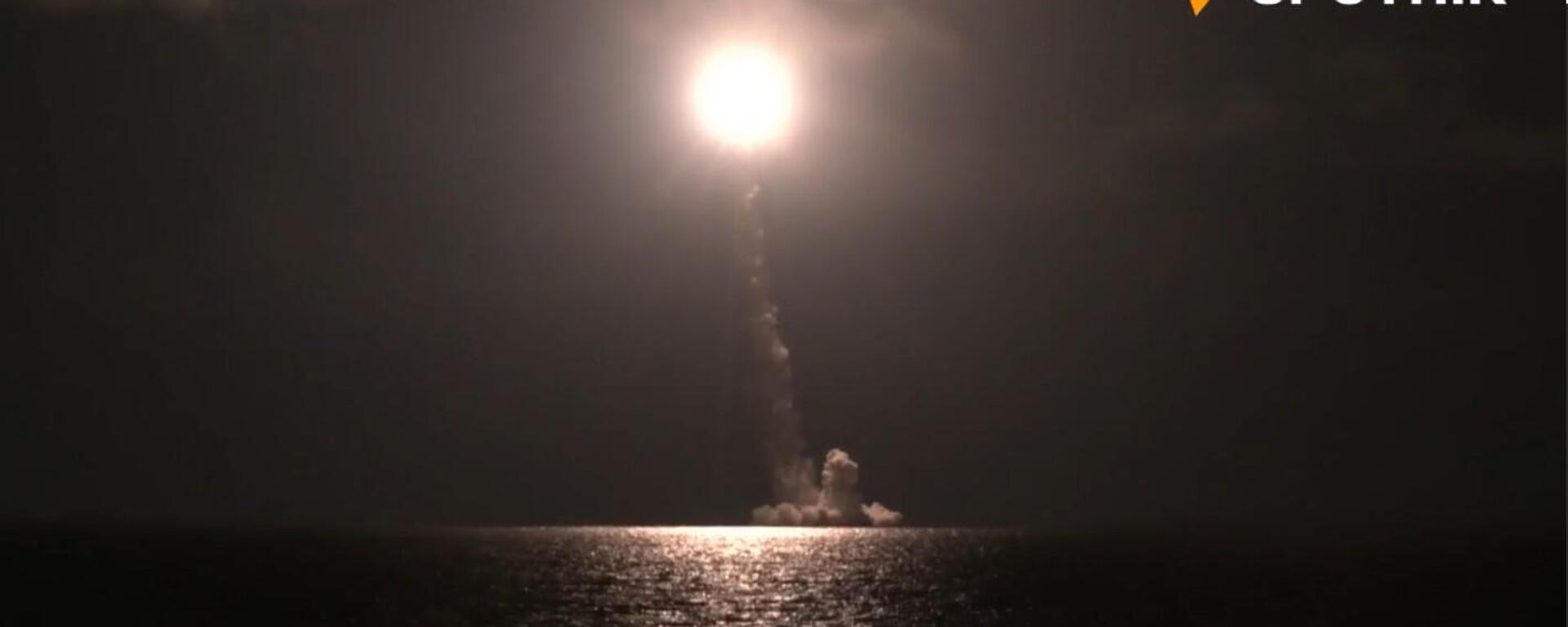Russia Winning Nuclear Arms Race 78 Years on From Hiroshima

© Sputnik / Press Service of the Ministry of Defense of the Russian Federation
/ Subscribe
NATO and Russia are on the brink of a new nuclear arms race after Moscow followed the West's suit in renouncing the 1996 test ban treaty. Former CIA analyst Ray McGovern, co-founder of Veteran Intelligence Professionals for Sanity, said Russia had the edge in regional-range missiles.
The US and NATO should take heed of Russia's superiority in nuclear weapons systems before it escalates the conflict in Ukraine, a CIA insider says.
Russian Security Council Secretary Nikolai Patrushev told the International Russia EXPO Forum and Exhibition in Moscow at the weekend that the country was now the most-advanced nuclear-armed power in the world.
"For the first time in the entire history of nuclear missile weaponry, our country has overtaken its competitors in this field and has become the possessor of unique strategic weapons, including hypersonic weapons, which will ensure security for decades to come," Patrushev said.
Last week President Vladimir Putin, acting on the authority of the State Duma parliament, revoked Russia's ratification of the Comprehensive Nuclear Test Ban Treaty (CTBT). On Tuesday Moscow formally withdrew from the Treaty on Conventional Armed Forces in Europe (CFE).
Former CIA analyst Ray McGovern asked Sputnik whether US citizens know their country had fallen so far behind — or "does even the Pentagon know that?"
"What Patrushev is talking about are hypersonic missiles, which we don't have. And they do have and even the Chinese have these," McGovern said. "We've been trying to develop them for five, six, seven years now. Just can't seem to get the hang of it."
"These things fly at Mach nine, nine times the speed of sound. There is no defense against them. Even President [Joe] Biden has admitted that unintentionally," he added. "They were used in Ukraine without nuclear warheads, thank God. But we know what they can do. They've been tried and tested."
Those new Russian capabilities should be a warning to Washington, the intelligence expert said.
"When Biden and [US Secretary of State] Blinken and so on have to admit that they they're just on the point of losing and they can't possibly lose in Ukraine, because then they would lose the election and maybe even lose their freedom by going to jail, and they say: 'We got any more of those 155mm cluster weapons or depleted uranium, though? What else we got? Well, we had a mini-nuke'," McGovern explained. "What the Russians are saying here is: 'look, don't even think about it because we have a regional capability here with these Kinzhal missiles that you can never defend against. They're ready and the advantage is ours'."
The analyst cautioned that Russia's advantage does not override the deterrent threat of mutually-assured destruction (MAD), which has held sway since the Soviet Union tested its first nuclear weapon in 1949 — in response to the US dropping two such weapons on the Japanese cities of Hiroshima and Nagasaki in 1945.
"In a broader strategic concept, does this matter? No, we still have the triad, the bombers and the submarines and the ICBMs [intercontinental ballistic missiles]," McGovern said. "Neither side can think they could possibly escape a devastating response, destroying their countries and probably the world."
"What Patrushev is saying is: 'if you start something regional, we can do real, real harm to you'," he stressed. "What people have to remember is that does not change the strategic equation. "There is no air defense on either side or ABM [anti-ballistic missile] defense that can protect one from the other were there to be a nuclear exchange."
For more in-depth analysis of current affairs, tune in to our Sputnik Radio show The Critical Hour.



